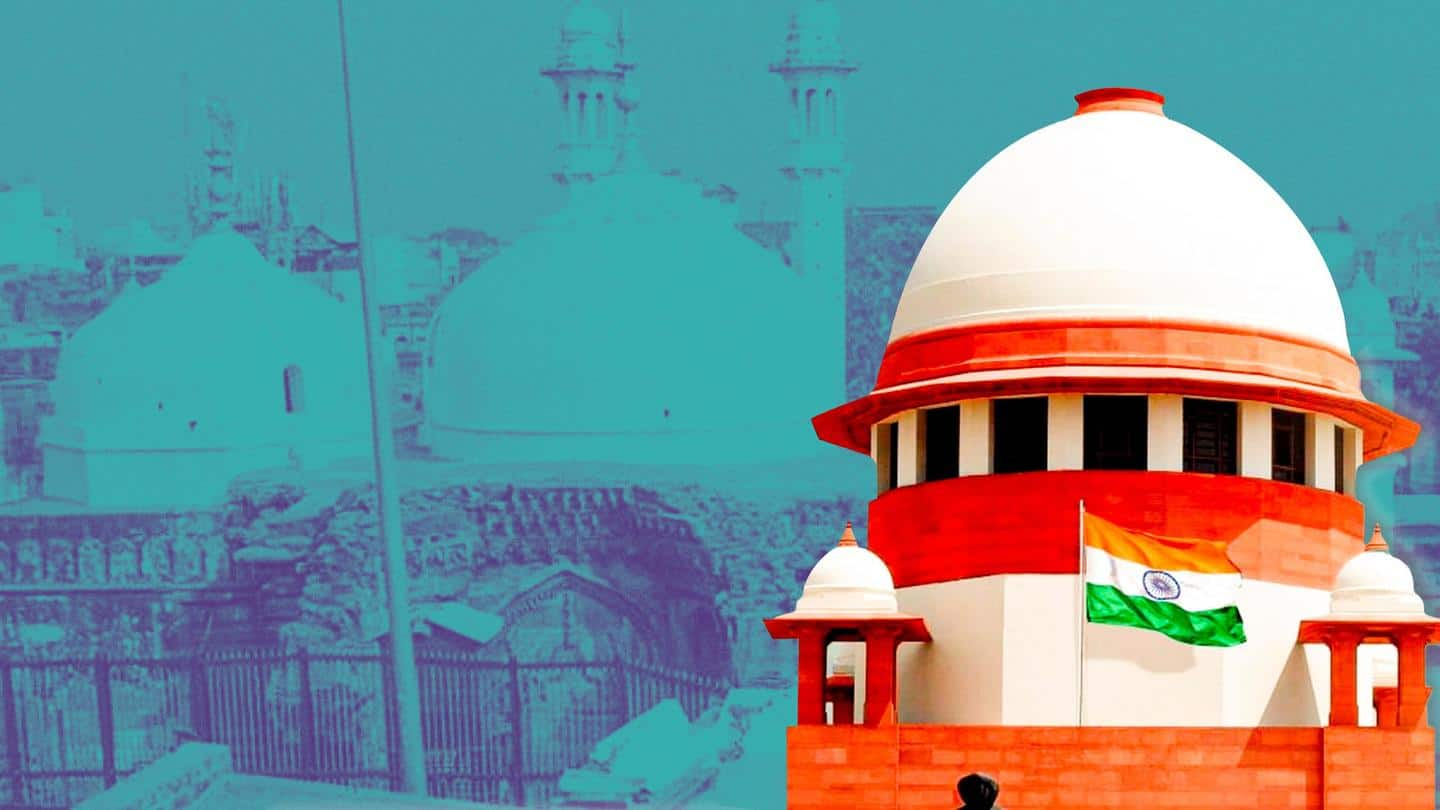
Gyanvapi Mosque survey: SC refuses to grant interim status quo
What's the story
The Supreme Court on Friday refused to grant an interim order of status quo on the survey of the Gyanvapi Mosque in Varanasi, Uttar Pradesh.
The court stated that it cannot issue an order until it has studied the subject.
It did, however, agree to take into account a Muslim party's objection to the survey on the Gyanvapi Mosque premises.
Context
Why does this story matter?
The Gyanvapi Mosque issue is on the lines of the Ayodhya dispute, which was resolved in 2019.
In 1991, a number of petitioners had moved the Varanasi court, contending the mosque was built by Mughal emperor Aurangzeb after demolishing a Hindu temple in 1669.
They demanded that the mosque be removed and the land be handed over to Hindus.
SC
'No idea about case. Let me look at papers': CJI
A Supreme Court bench led by Chief Justice of India NV Ramana stated that it cannot issue an order without first reviewing the files.
"I have no idea about this case. Let me look at the papers. We will list it," the CJI said.
Senior Advocate Huzefa Ahmadi, representing the Anjuman Intezamia Masjid (AIM) Committee, filed the case before the court.
Plea
What was counsel's plea?
"This is the mosque for time immemorial and the trial court order is clearly interdicted by the Places of Worship Act, 1991...to direct the Commissioner to conduct the survey," said Ahmadi.
After Ramana responded that he will first look into the case file and pass the order, Ahmadi said, "But the penny might drop in the meanwhile...because the survey is being conducted right now."
Details
What happened in the Varanasi trial court on Thursday?
On Thursday, a Varanasi court denied the request to change the court commissioner undertaking a videography survey of the Gyanvapi Mosque complex, ordering the assignment to be completed by May 17.
The district court also appointed two more attorneys to assist the commissioner in the survey of the mosque, which is located near the famed Kashi Vishwanath temple.
Order
Varanasi court allowed survey based on women's petition
On April 18, 2021, five Delhi-based women had demanded permission for year-long daily worship of deities Shringar Gauri, Lord Ganesh, Lord Hanuman, and Nandi placed in the mosque complex.
Currently, devotees are allowed to worship at Shringar Gauri only on the fourth day of Chaitra Navratri.
Later, on April 26, 2022, the court ordered a survey and videography by the commissioner.
Details
Survey remained incomplete after protests
The court heard the petition for the survey official's replacement from Monday through Wednesday.
On their part, the mosque management accused the surveying officer, advocate commissioner Ajay Mishra, of favoring Hindu petitioners in the court-ordered survey and demanded that he be removed.
Last week, the officer carried out an inconclusive survey of some parts of the complex following sloganeering from both sides.
Controversy
Controversy began in 1991 after petitions against mosque
In 1991, lawyer Vijay Shankar Rastogi filed a petition in a Varanasi court as the "next friend" of the Kashi Vishwanath Mandir's presiding deity.
Rastogi had argued Maharaja Vikramaditya built a temple 2,050 years ago on the site where the Gyanvapi Mosque currently stands.
Other petitioners claimed Aurangzeb built the mosque in the 17th century by removing a portion of the Kashi Vishwanath Mandir.